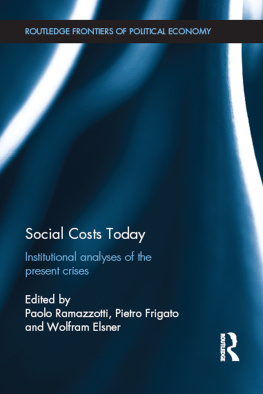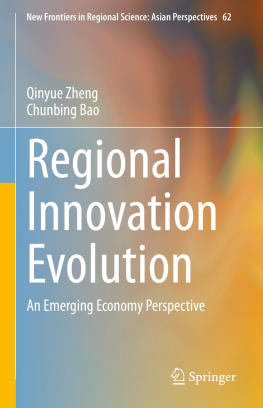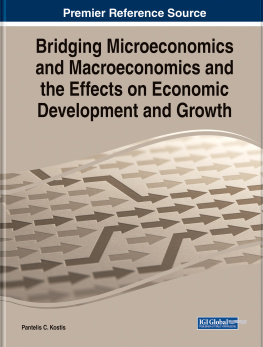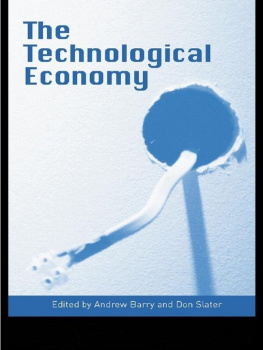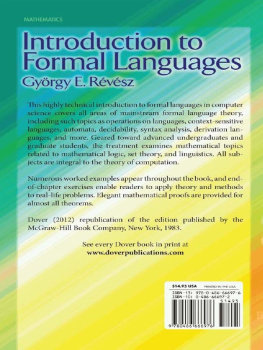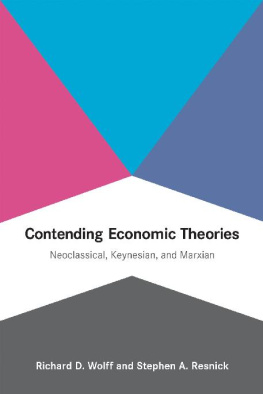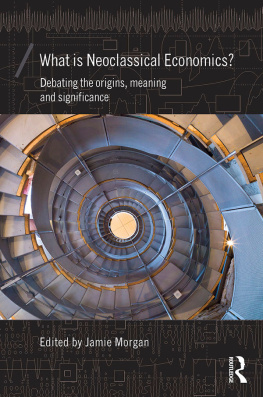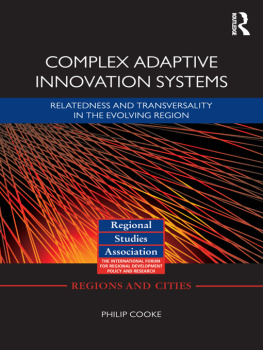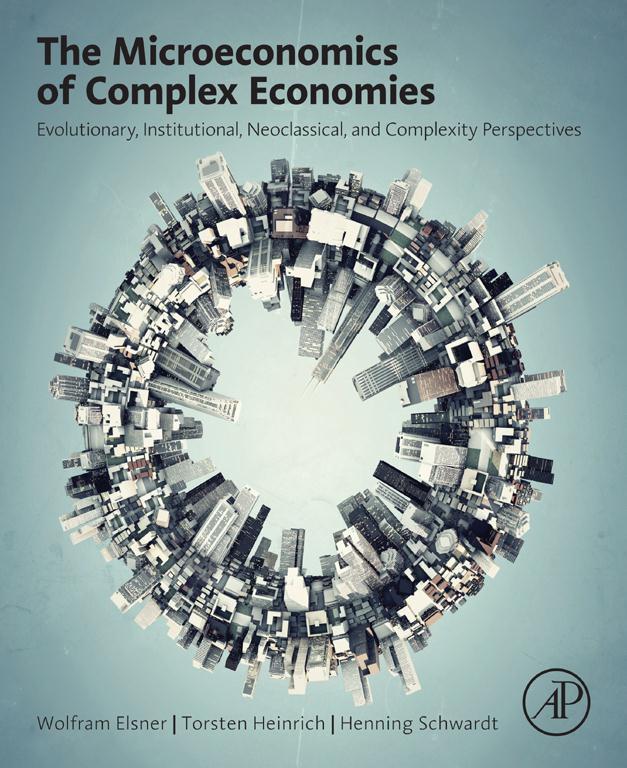List of tables
- Tables in Didactics: How to Work with This Textbook at Introductory, Intermediate, and Advanced Levels, and in Different Kinds of Courses
- Tables in Chapter 1
- Tables in Chapter 5
- Tables in Chapter 7
- Tables in Chapter 10
- Tables in Chapter 11
- Tables in Chapter 13
- Tables in Chapter 16
List of illustrations
- Figures in Preface: A Complexity Microeconomics, Post-Crisis
- Figures in Chapter 2
- Figures in Chapter 3
- Figures in Chapter 4
- Figures in Chapter 5
- Figures in Chapter 7
- Figures in Chapter 8
- Figures in Chapter 9
- Figures in Chapter 10
- Figures in Chapter 11
- Figures in Chapter 13
- Figures in Chapter 14
- Figures in Chapter 15
- Figures in Chapter 16
- Figures in Chapter 17
Landmarks
Table of Contents
The Microeconomics of Complex Economies
Evolutionary, Institutional, Neoclassical, and Complexity Perspectives
Wolfram Elsner
Torsten Heinrich
Henning Schwardt
University of Bremen, Bremen, Germany

Copyright
Academic Press is an imprint of Elsevier
The Boulevard, Langford Lane, Kidlington, Oxford OX5 1GB, UK
Radarweg 29, PO Box 211, 1000 AE Amsterdam, The Netherlands
225 Wyman Street, Waltham, MA 02451, USA
525 B Street, Suite 1800, San Diego, CA 92101-4495, USA
Copyright 2015 Elsevier Inc. All rights reserved.
No part of this publication may be reproduced, stored in a retrieval system or transmitted in any form or by any means electronic, mechanical, photocopying, recording or otherwise without the prior written permission of the publisher
Permissions may be sought directly from Elseviers Science & Technology Rights
Department in Oxford, UK: phone (+44) (0) 1865 843830; fax (+44) (0) 1865 853333; email: , and selecting Obtaining permission to use Elsevier material
Notice
No responsibility is assumed by the publisher for any injury and/or damage to persons or property as a matter of products liability, negligence or otherwise, or from any use or operation of any methods, products, instructions or ideas contained in the material herein.
Because of rapid advances in the medical sciences, in particular, independent verification of diagnoses and drug dosages should be made
British Library Cataloguing-in-Publication Data
A catalogue record for this book is available from the British Library
Library of Congress Cataloging-in-Publication Data
A catalog record for this book is available from the Library of Congress
ISBN: 978-0-12-411585-9
For information on all Academic Press publications visit our website at http://store.elsevier.com/
Typeset by MPS Limited, Chennai, India www.adi-mps.com
Printed and bound in the United States of America
15 16 17 18 19 10 9 8 7 6 5 4 3 2 1

Dedication
Wolfram Elsner dedicates this book to his wife Angelika, who gave so much for it, his children Katja, Daniel, and Nina, and grandchildren Lia, Leonel, and Ida Malin.
Torsten Heinrich dedicates this book to his parents, Sigrid Heinrich and Gnter Heinrich.
To RebekahHenning Schwardt.
Preface: A Complexity Microeconomics, Post-Crisis
A surgeon, an engineer and an economist are discussing which of the three disciplines would be the oldest: The surgeon spoke first and said, Remember at the beginning when God took a rib out of Adam and made Eve? Who do you think did that? Obviously, a surgeon. The engineer was undaunted by this and said, You remember that God made the world before that. He separated the land from the sea. Who do you think did that except an engineer? Just a moment, protested the economist, before God made the world, what was there? Chaos. Who do you think was responsible for that?
Told by Franco Modigliani
[] the paradigm shift from a geocentric to a heliocentric worldview facilitated modern physics, including the ability to launch satellites. In the same way should a paradigm shift from a component-oriented to an interaction-oriented, systemic perspective (as promoted by complexity science) enable us to find new solutions to urgent societal problems.
Dirk Helbing and Alan Kirman
Economics after 2008
Lingering Crises, Increased Socioeconomic Volatility, and the Struggle for Answers
Economists being responsible for chaos, as mentioned in the little metaphor above. Admittedly, economics has not been really successful so far in contributing to the solution of the most basic problems of mankind. Contributing to the solution of the problems of the world nowadays would mean to give useful advice for a more sustainable, and socially and regionally inclusive, more stable, and reliable economic development, where all agents may become capable of learning, investing in their human and social capital, and innovating in a broad sense. And many professional practitioners, entrepreneurs, and politicians, supported by an increasing number of critics from the ranks of academic economics itself, nowadays think that economists have increasingly failed to inform such actions. Among these problems figure those of a sustainable use of resources, climate protection, of food safety, health, and education provision for all, an income distribution considered fair, efficient, and just by most, social inclusion, power control, or more participation.
The neoliberal recipes, however, have largely been De-regularisez! Privatisez! Le march va de lui-mme. And their singular trust in market forces for achieving social and economic improvements does no longer appear sufficient to an increasing number of discontents from both outside and within economics. Rather, we have experienced the most severe financial meltdown and economic crisis since 80 years, if not in history, aggravated by food and resource, climate, health, social, political, and even moral crises. Markets and industrial and financial corporations often appeared helpless, and the latter at times desperately called in the most massive support of the state (budget and central banks) and, thus, taxpayers.
This crisis, still lingering, appears to be a case, a prominent one indeed, of a most basic complexity-economics issue, a case of collective negative unintended consequences of what appeared rational individualism. This outcome of a fallacy of aggregation reflects increased, but insufficiently recognized systemic complexity, including ubiquitous social dilemmas, reinforced by an overly individualistic cultural framework.
Since the beginning of the financial crisis 20072008, the big established printed media have become particularly critical against economics and its mainstream. In the New York Times, for instance, famous physicist and economist Mark Buchanan argued in 2008 that economics were the only nonmodern discipline left, as its mainstream had no developed complexity approach, also arguing that this economy does not compute the way the economics mainstreams pure market model and its rational individuals allegedly do ().


